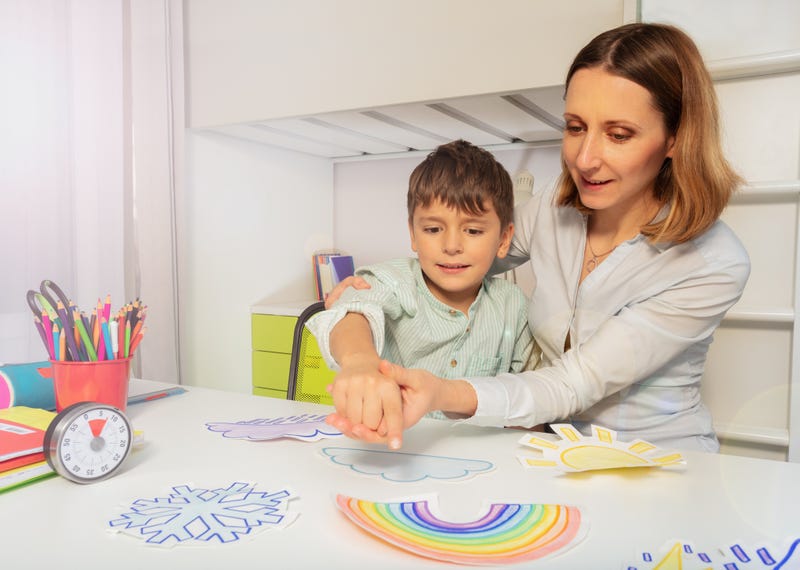
SAN FRANCISCO (KCBS RADIO) – April is Autism Acceptance Month – an effort to promote awareness of the disorder and the challenges for the neurodiverse.
Roughly one in 36 American children have been diagnosed with autism spectrum disorder, according to the CDC based on 2020 data of children born in 2012. The prevalence of the disorder has steadily increased this century. In 2000, one in 150 children born in 1992 had autism spectrum disorder.
The government statistics also showed it occurs in all ethnic groups, but is nearly four times as common among boys than girls.
Why autism happens remains a mystery.
“We have been working on identifying the causes of autism for as long as autism has been recognized,” Dr. Bryan King, Vice President for Child Behavioral Health at UCSF Benioff Children’s Hospitals, told KCBS’ Bret Burkhart on this week’s episode of As Prescribed.
Part of the challenge is that the disorder isn’t a singular, one-size-fits-all condition.
“There isn’t a single autism,” Dr. King explained. “Autism is a collection of many, many different conditions that share common behaviors. The diagnosis is based on behavioral manifestations of this syndrome.”
The various manifestations make finding the cause difficult. But there has been progress.
One theory that has been ruled out as a cause for autism by researchers is vaccines.
“The critical period of development for autism is in utero,” said Dr. King. “The genes that are being identified in association with autism risk and some of the environmental factors that appear to contribute to risk are operating at a time before a child is even born. So long before there is a chance for a vaccine to cause anything.”
Dr. King also noted that there have been an increasing number of physiological studies showing that infants six months of age who go on to develop autism already demonstrate changes in their preference in looking at faces compared to those who don’t develop autism.
Along with the search for a cause, finding ways to effectively treat autism is another goal for researchers.
“We have made substantial progress over the past two decades in terms of our ability to treat it,” stated Dr. King. But effective treatment is also a challenge because of autism’s uniqueness in each person.
“There are a number of evidence-based behavioral interventions that have been developed and tested in recent years,” he explained. “But where the field needs to move forward is in determining which of those behavioral interventions is best for a particular individual. The focus has largely been on children, but we also as a field have increasingly needed to expand support for school-age youth, adolescents, transitional age youth, and adults, even elders.”
